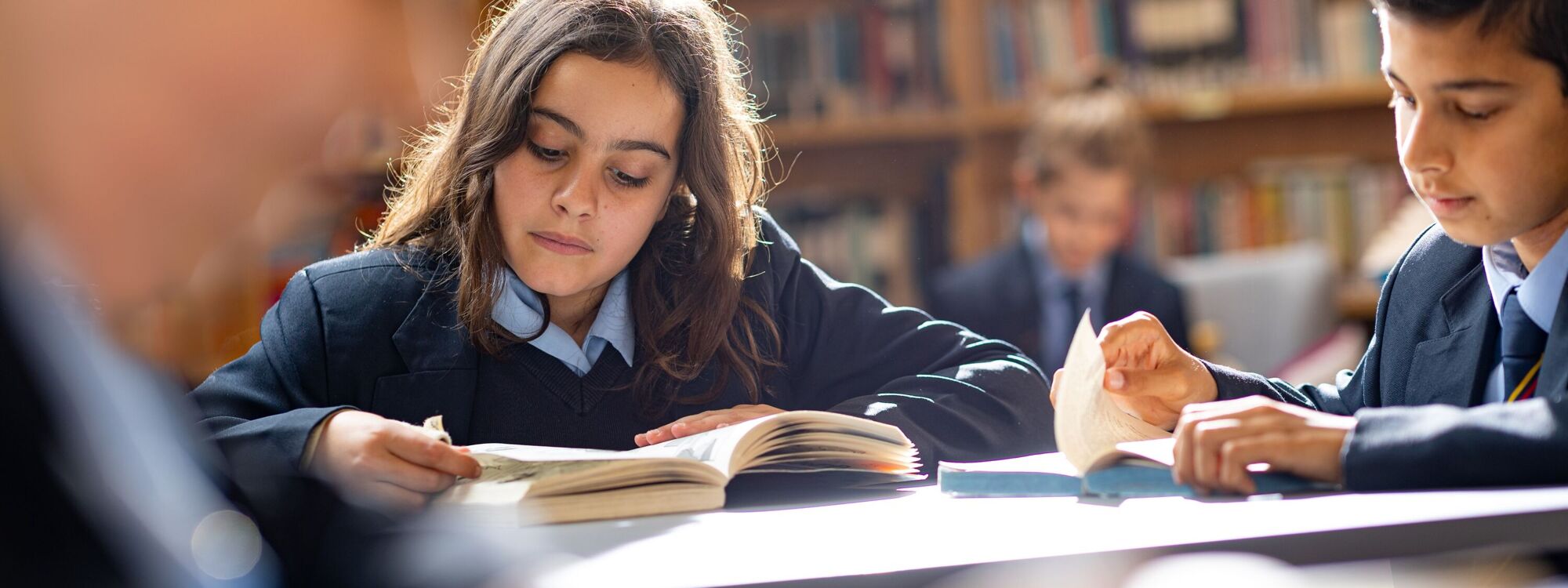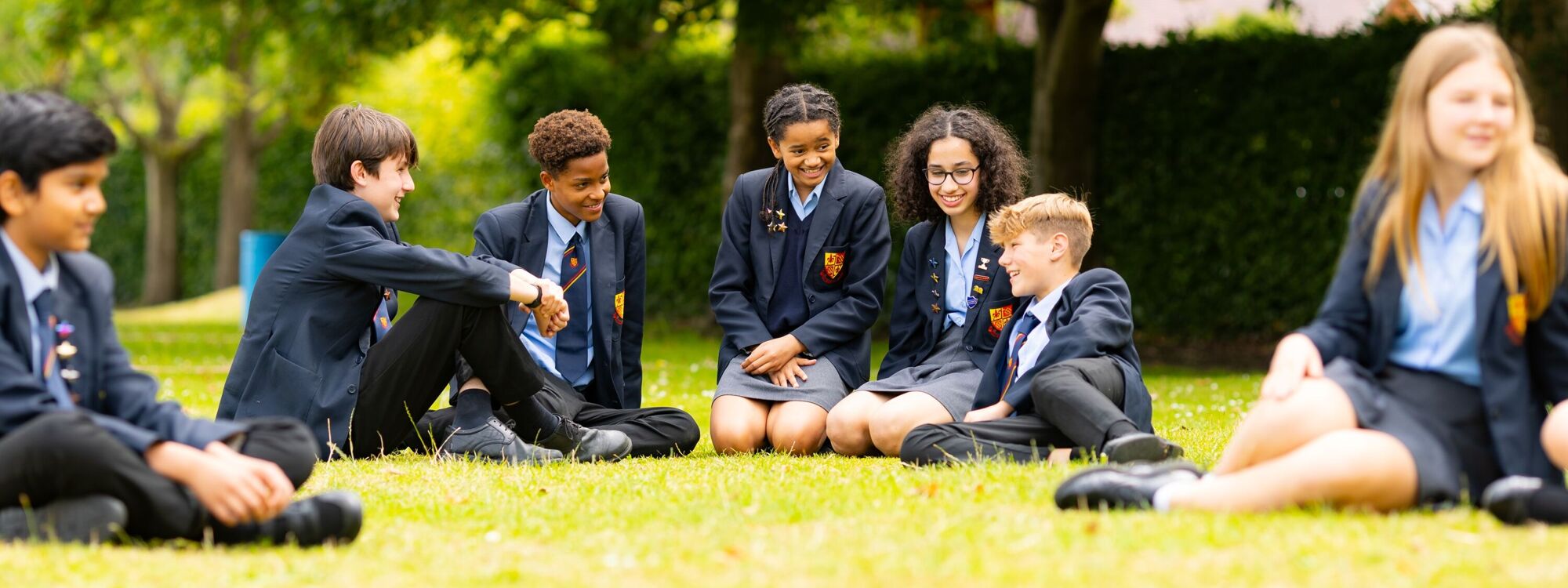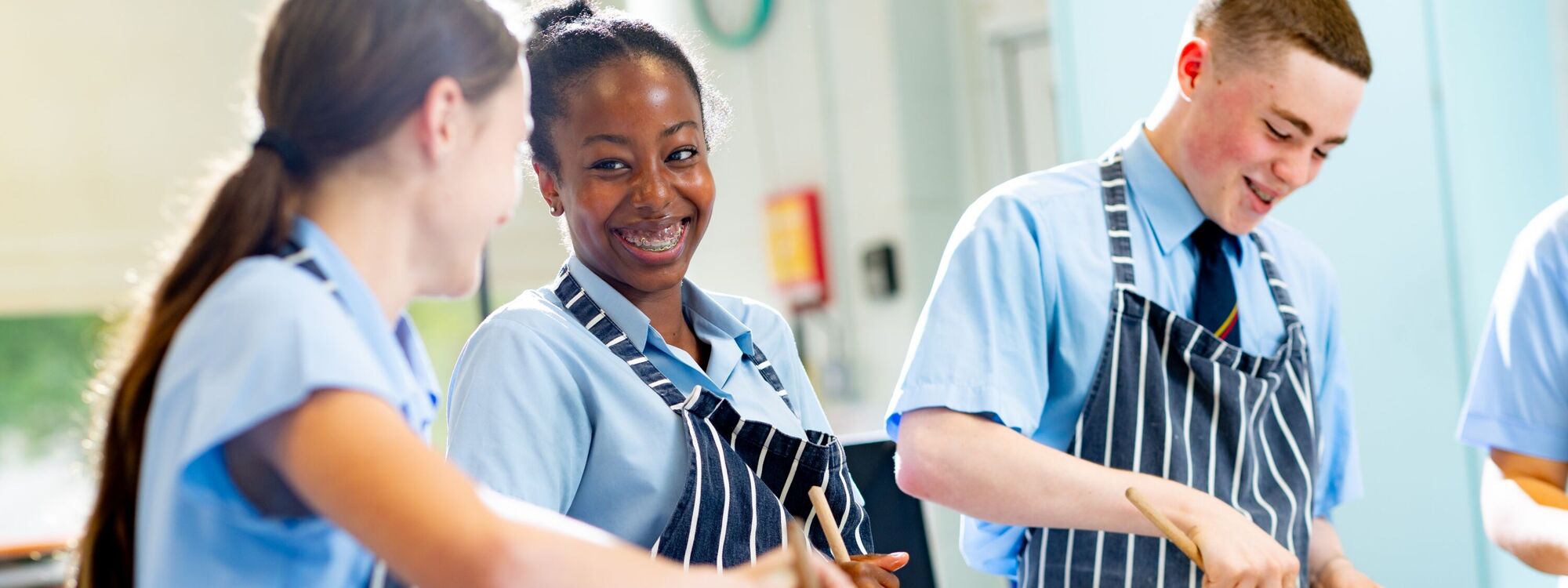


- Home
- Curriculum
- Teaching, Learning and Assessment
Teaching, Learning and Assessment
TLA Philosophy
Our TLA (Teaching, Learning and Assessment) philosophy is centred on a child’s right to learn. Teachers at Woking High School are not only passionate teachers of their subject but passionate teachers of children.
The education we provide will expand our student’s future opportunities and ensure that they have a positive impact on wider society. Equality of opportunity is a bedrock of our TLA philosophy as we firmly believe that all students should be able to experience success in all subjects.
We believe knowledge matters as it underpins the skills we can acquire and our behaviours. There are no shortcuts to learning at Woking High School as we openly recognise that hard work, thinking hard and regular practice are the keys to success. With this in mind, we ensure our classroom practices are informed by educational research and an understanding of cognitive science.
The 'Do Now'
At Woking High School, we believe that great learning can only happen if students are paying their full attention. We want our students to start every lesson engaged, so we use a silent activity at the beginning of each lesson.
The ‘Do Now’ is:
-Completed in silence.
-Accessible for all students without a teacher’s input.
-Primarily focused on retrieval practice/revision.
-Completed within the opening ten minutes.
-Used in practical subjects as an opportunity for students to prepare for the activity.
All students are expected to greet their teacher, enter the room in silence, quietly take out their equipment for the lesson and to complete the ‘Do Now.’
Retrieval Practice
Retrieval practice is a strategy in which bringing information to mind enhances and boosts learning. Deliberately recalling information forces us to pull our knowledge “out” and examine what we know.
At Woking High School, we believe that the key to making learning durable and flexible is retrieval practice. Students need regular opportunities to move knowledge from their short-term memory (what they learnt that day) to their long-term memory (knowledge they can accurately recall long after it is originally taught).
Our ability to recall knowledge, once learnt, will naturally degrade with time.
To move newly learnt knowledge from our short-term memory to our long-term memory involves regular recall and practice.
So, at Woking High School, we ensure our students, from Year 7 onward, are provided with regular opportunities to complete retrieval practice as part of their taught curriculum in their day-to-day lessons and as part of our homework package. They are also deliberately taught the skills of how to revise independently, using practices such as brain dumps, the use of revision cards and summarising.
Homework
Homework is a key element of learning at Woking High School. It is an essential ingredient that helps our students retain knowledge and without practice, we forget. Everyone appreciates the importance of focused and regular practice for a sportsperson or musician if they want to improve and move closer to performing at their best. The same applies to learning. For our students to make progress and move closer to performing at their best, they need to complete focused and regular practice, in the form of homework.
Our homework tasks are:
-Created to build on a student’s prior knowledge and to enable students to practice.
-Based around information that is recorded in their exercise books, which students should use to help them.
-Set on ClassCharts and students will usually be given at least 5 days before it needs to be handed in.
If a student has any queries about their homework, they should speak to or email their subject teacher as soon as possible. Also, if they are absent on the day the homework is set, they will still be expected to complete it, so it is vital that they speak to the relevant teacher as soon as possible to get extra support and/or an extension.
Homework frequency: KS3 (Years 7-9)
| Department | Approximate number of homework tasks set each cycle (every two weeks) | Average time students should spend on homework |
| Drama, F&N, Music | 1 | 30 minutes |
| Art, Computing, DT, Latin, PE | 1 | 30-45 minutes |
| Geography, History, RE | 1 | 30-45 minutes |
| English, Languages, Mathematics, Science | 2 | 60 minutes |
Students in KS3 will be set approximately 1 hour of homework each evening.
Homework frequency: KS4 (Years 10-11)
Homework in Years 10 and 11 is set on a weekly basis in all examination-based subjects. Students in KS4 will be set approximately 2 hours of homework each evening.
Tri-Weekly Assessments (TWA)
Assessment is an integral part of the teaching and learning process. It should be used to inform, guide and shape the planning and delivery of all teaching and learning and guide students on what they need to do next. Tri-weekly assessments enable students to demonstrate skills and the application of knowledge as well as the retention of knowledge.
TWAs take place at least every 3 weeks and are built around the following 3 core principles:
-They are relevant to current teaching and learning.
-They can be used immediately to inform planning and the delivery of lessons.
-They pinpoint individual students’ strengths and weaknesses in a timely manner.
After a TWA has been marked, class time is dedicated to reviewing the results and providing feedback. Students know what they need to do to improve and are given the chance to do so. Students are tasked with completing a response to address errors and misconceptions.
Reporting
At Woking High School, we recognise that a child’s success is positively affected by the effectiveness of the partnership between school and home; regular reporting is a key feature of ensuring parents/carers have the information they need to support the child in their learning, but also the school’s mission and policies.
Our formal reporting points are spread across the year and include formal reports and consultation evenings, virtual and face-to-face. Parents/carers will receive up to three reports each academic year and be able to attend up to two Consultation Evenings, depending on the year group. The schedule is on the school calendar from the start of the year. There are, of course, other opportunities to attend general events at the school, such as our Information Evenings, throughout the year.
Parents/carers will receive a letter in advance of Consultation Evenings and they will be able to book appointments via SchoolCloud. In year groups where there are two Consultation Evenings, one of these will be face-to-face and the other will be virtual. Virtual Consultation Evenings happen via video conferencing on the SchoolCloud platform; information on how to access these meetings is shared in advance.
In addition to the formal reporting, we keep parents/carers informed of school matters and celebrate students’ successes in the following ways:
· The ClassCharts APP
· Schoolcomms
· Letters about trips and events
· School information evenings and events
· The school's website
· The Parent Handbook - website
· Termly newsletters
· Twitter
· Individual emails or phone calls
· Separate meetings
We encourage parents/carers to contact relevant staff throughout the year to share information which may affect the child’s day-to-day learning and to discuss any concerns. The first port of call, in terms of subject specific matters, is always the class teacher and, in terms of general queries or wellbeing, it is the child’s tutor. However, the Heads of Department or Heads of Year are also available to help with any concerns that may arise.
Our staff will, similarly, contact parents/carers to share information or to discuss concerns.
Any queries can be directed via info@wokinghigh.surrey.sch.uk.
